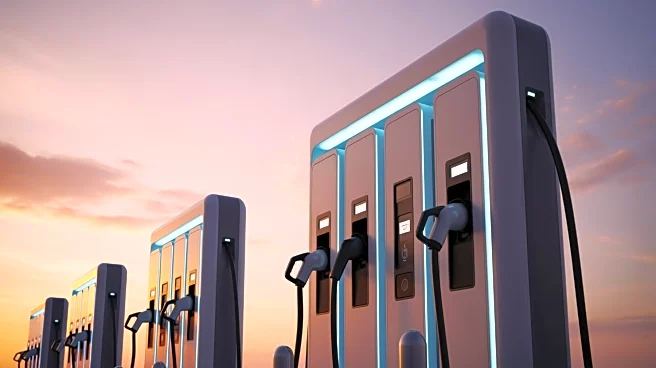What's Happening?
Rivian, an electric vehicle manufacturer based in Irvine, is laying off approximately 600 employees, which accounts for about 4.5% of its workforce. This decision comes as the company faces a slowdown
in demand for electric vehicles (EVs), attributed to the expiration of federal tax credits and the imposition of new auto tariffs under the Trump administration. The federal tax credit, which provided significant savings for EV buyers, ended on September 30, leading to a predicted decline in sales. Rivian's layoffs are part of a broader strategy to cut costs and adjust to the changing market conditions. The company plans to introduce a new, more affordable model priced at $45,000 to boost sales, as its current models are considered too expensive for many consumers.
Why It's Important?
The layoffs at Rivian highlight the challenges faced by the electric vehicle industry in the U.S. as it grapples with policy changes and market saturation. The reversal of Biden-era incentives and the introduction of tariffs have increased the cost of EVs, potentially stalling the transition to electric transportation. This situation affects not only manufacturers like Rivian but also consumers who may find EVs less financially attractive without the tax credits. The broader impact could slow down the adoption of electric vehicles, affecting environmental goals and the automotive industry's shift towards sustainable energy solutions.
What's Next?
Rivian is expected to release its earnings on November 4, which will provide further insights into the company's financial health and future strategies. The introduction of a more affordable model could help Rivian regain some market share, but the company will need to navigate the financial challenges posed by the loss of federal incentives and increased production costs due to tariffs. The broader EV market may see similar adjustments from other manufacturers as they respond to these economic pressures.








